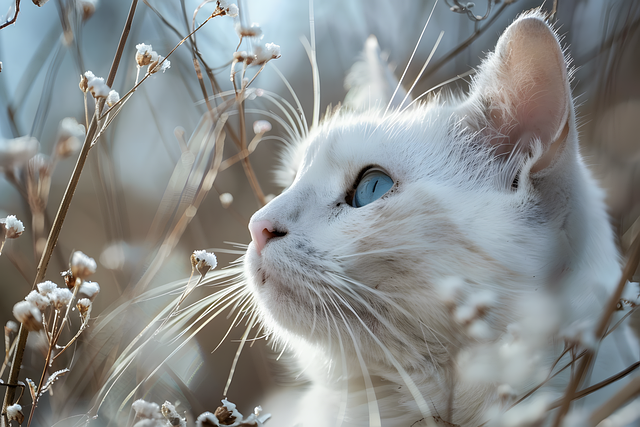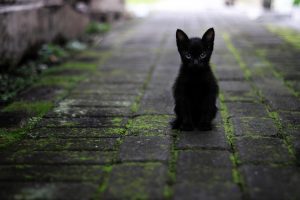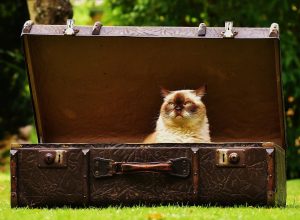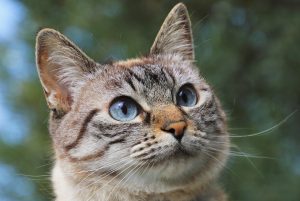
Introduction
Choosing the perfect cat breed for your lifestyle is a significant decision that requires careful thought and preparation. Cats bring joy, companionship, and even health benefits, but not all breeds suit every household. This guide will help you navigate the challenges of selecting a cat breed by examining your lifestyle, preferences, and the specific needs of different breeds.
Understanding Your Lifestyle
Before diving into the specifics of cat breeds, it’s crucial to assess your lifestyle. Consider the following factors:
- Living Space: Do you live in a small apartment or a spacious house? Some breeds are more adaptable to smaller spaces than others.
- Time Commitment: How much time can you dedicate to your cat daily? Some breeds require more attention and social interaction.
- Allergies: Are you or your family members allergic to cats? Some breeds are more hypoallergenic than others.
- Other Pets: Do you have other pets? Some cat breeds are more sociable and get along with other animals better.
Researching Cat Breeds
Once you have a clear understanding of your lifestyle, you can begin researching cat breeds. Here are some popular breeds and their general characteristics:
Sphynx
The Sphynx is known for its hairless appearance and affectionate nature. They are highly social and thrive on human interaction, making them ideal for households where someone is usually at home. However, they require regular skin care due to their lack of fur.
Maine Coon
Maine Coons are one of the largest domesticated cat breeds, known for their friendly and gentle disposition. They enjoy socializing with their human families and are generally good with children and other pets. They require regular grooming due to their long fur.
Bengal
Bengals are energetic and playful cats with a distinctive wild appearance thanks to their spotted coat. They require ample playtime and mental stimulation, making them suitable for active households. Bengals are known for their intelligence and sometimes mischievous behavior.
Ragdoll
Ragdolls are large, affectionate cats known for their docile nature. They often go limp when picked up, hence the name. Ragdolls enjoy being around people and are great for families with children. They require regular grooming due to their semi-long fur.
Persian
Persians are known for their calm and laid-back personalities. They are a good fit for quieter homes and are typically content to lounge around. Persians require daily grooming to maintain their luxurious coat and have specific health considerations due to their flat faces.
Health and Lifespan Considerations
Understanding the health needs and lifespan of different breeds is essential when choosing a cat. Some breeds are predisposed to specific health issues, which can influence your decision:
- Sphynx: Prone to skin conditions and heart issues.
- Maine Coon: Can develop hip dysplasia and heart disease.
- Bengal: May have kidney or heart issues.
- Ragdoll: Prone to heart disease.
- Persian: Can suffer from respiratory issues and kidney disease.
Consult with a veterinarian to understand the potential health challenges of each breed and ensure you are prepared for their care.
Social and Environmental Needs
Cats have varying social and environmental needs. Consider the following:
- Social Interaction: Breeds like the Sphynx and Bengal require more social interaction, while Persians and Ragdolls are more independent.
- Toys and Enrichment: Active breeds like Bengals need more toys and environmental enrichment to keep them occupied.
- Outdoor Access: Some cats enjoy outdoor access, but safety should always be a priority.
Allergies and Hypoallergenic Breeds
For individuals with allergies, hypoallergenic breeds like the Sphynx, Balinese, or Siberian may be better suited. These breeds produce fewer allergens, but it’s essential to spend time with a cat before committing to ensure no adverse reactions.
Budget and Financial Commitment
Owning a cat involves a financial commitment. Consider the following costs:
- Initial Costs: Adoption fees or purchase costs can vary significantly between breeds.
- Food and Supplies: Quality food, litter, toys, and bedding are ongoing expenses.
- Veterinary Care: Regular check-ups, vaccinations, and potential health issues should be budgeted for.
- Grooming: Some breeds require regular professional grooming.
Adoption vs. Buying
Deciding whether to adopt or buy a cat is another important consideration. Adoption provides a home for a cat in need and often includes initial medical care. Buying from a breeder allows you to choose a specific breed and sometimes offers more insight into the cat’s genetic background. Ensure breeders are reputable and prioritize the health and well-being of their cats.
Conclusion
Choosing the perfect cat breed for your lifestyle involves careful consideration of your living situation, time commitment, financial readiness, and personal preferences. By understanding the specific needs and characteristics of different breeds, you can make an informed decision that ensures a harmonious match between you and your future feline friend. Whether you choose to adopt or buy, the joy and companionship a cat brings are well worth the preparation and effort.
#ChatGPT assisted in the creation of this article.









